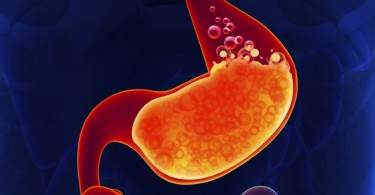In gastric acid reflux, the contents of stomach and gastric acid reflux to the esophagus. In addition to many other symptoms, this condition can lead to chest burns and discomfort. Some evidence suggests that several hormones in the body may play a role in acid reflux. Estrogen is an example. This important hormone is responsible for the regulation and development of the female reproductive system, including the menstrual cycle. Although the exact role of estrogen in gastric acid reflux remains unclear, some evidence suggests that estrogen, along with other hormones, may have an aggravating effect.
Advertisements
 pregnant women uncomfortable sitting in bed
pregnant women uncomfortable sitting in bed Estrogen and gastric acid reflux during pregnancy experience a surge in several important hormones including estrogen. This hormone helps the mother's uterus maintain pregnancy and stimulates fetal development. There is some evidence that this hormone boom may also lead to acid reflux. It is presumed that this is because estrogen may cause relaxation of a valve in the esophagus called the lower esophageal sphincter (les). This relaxation can reverse the movement of the contents of the stomach and return to the esophagus. As a result, acid reflux can occur, and heartburn, dysphagia, cough and nausea can occur in patients. h3>Estrogen, hormone replacement therapy and acid reflux in hormone replacement therapy, estrogen and other hormones are given during or after menopause. Such treatment can help reduce symptoms such as hot flashes or vaginal dryness. It also helps prevent bone loss, which may be due to a sharp drop in estrogen after menopause. Unfortunately, estrogen supplementation during hormone replacement therapy, as well as another hormone called progesterone, can also cause acid reflux. Some studies suggest that this may be due to the relaxation of les, although other mechanisms are possible. According to a 2008 study in the Journal of the American Medical Association, the risk of GERD symptoms increases with increasing doses and duration of estrogen use. estrogen, obesity and acid reflux obesity are associated with increased risk of acid reflux. Overweight is thought to cause reflux in many different ways. The effect of extra body fat on estrogen levels may be one of them. Overweight and obese women tend to have higher circulating estrogen levels, especially after menopause. If this increase leads to Les loosening, women with higher BMI may be more likely to suffer from acid reflux for a variety of reasons. Maintaining a healthy body mass index helps to avoid this situation. Estrogen, birth control and acid reflux are the contraceptive methods used by many women. Many of these contraceptives use estrogen to limit fertility, whether orally, through patches, injections or implants. Some researchers speculate that hormones in these contraceptives may increase the risk of acid reflux. According to a 2007 study in the Journal of Gastroenterology and Liver Diseases, the use of oral contraceptives is associated with acid reflux. The side effects of estrogen and acid reflux
use of estrogen, whether in hormone replacement therapy or contraception, can lead to many side effects, including nausea and vomiting, some of which are similar to acid reflux-related symptoms. Any increase in these symptoms can be severe and should not be automatically attributed to heartburn. In addition, long-term use of estrogen increases the risk of thrombosis, heart disease, stroke and certain cancers. Therefore, it is very important for people to report any symptoms to medical institutions.





Comments